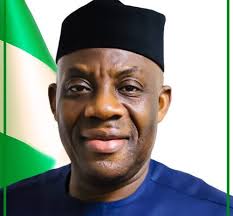Stakeholders in the education sector have backed the federal government’s new directive by the minister of Education, Dr. Maruf Tunji Alausa, which pegged the admission age to tertiary schools at 16.
The stakeholders and parents who spoke to LEADERSHIP in separate interviews on Tuesday stated that the government must have considered the pros and cons before setting the age limit, saying higher institutions should be for mature minds.
The Education Minister, who stated that the official age of 16 is non-negotiable while declaring open the ongoing Policy Meeting of the Joint Admissions and Matriculation Board(JAMB) in Abuja, warned that the heads of institutions engaged in admission fraud would face prosecution.
Responding to this development, educationist and writer Michael Omisore commended the directive, adding that this decision will curb the excesses of admitting underage students to higher institutions, even though it won’t prevent students of 16 and 17 years who have gained admission from becoming undergraduates.
“As far as I am concerned, this is in order. So far, we can still give the allowance for exceptionally brilliant students who scored above 320, as JAMB had earlier categorised them.
“When this age-appropriation issue was on last year, I wrote a whole article that addresses it, maintaining that 16 years should be the peg, not 18 as earlier proposed by the Ministry of Education.
“16 years as the minimum age for gaining admission on one hand will curb the excesses of having underage students on campus, and on the other hand, does not prevent students of 16 and 17 years, who are ready for admission, from becoming undergraduates,” he pointed out.
A teacher and a parent, Mrs Emily Opeyemi, also commended the directive and stated that it will allow students in the 16-year-old age bracket to enter higher institutions.
Opeyemi, however, noted that some teenagers are not mature enough to manage the rigours of campus life and are sometimes victims of peer pressure and cultism.
She added, “I would have preferred it pegged to 18 years, as education is sensitive and should not be rushed. I observed that private schools put the desire to profit from the schools first and are ready to graduate even teenagers of a lesser age, believing they will cope at the higher institutions”.
Another parent and a professional in Human Resources Management, Mrs Rhoda Isong, welcomed the decision. Still, the government should take a step further by fixing the loopholes in the education sector.
Isong, who stated that the sixteen-year-old age limit was a welcome development, added that both the federal and state governments should look into the fallen standard of qualitative state and federal universities.
She said, “I support the 16-year limit if it will favour students who qualify to be in higher institutions but are limited by a policy of somersault in the education sector in the area of oversight functions. This development will ensure quality education is deployed in state and federal higher institutions.
“Funding and the difference between quality and non-quality education is a big issue. I want the government at all tiers to prioritise education and address the falling standards, if we want to at least match other African and Caribbean countries in technological innovation, not to talk of the first world countries”.











